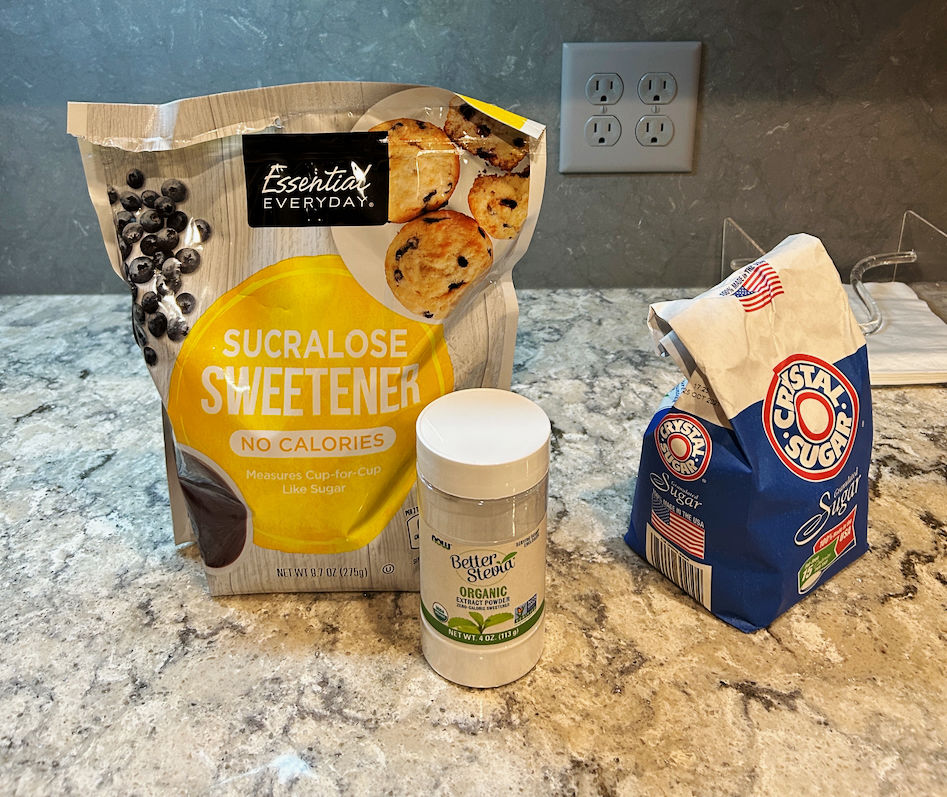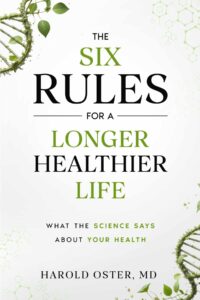What Is the Best Sweetener?

What Is the Best Sweetener?
I am frequently asked about sweeteners. Are they safe? Remember that everything has a downside and a risk. Eating a lot of sugar, the original sweetener, leads to obesity and diabetes. Even fruits and vegetables have risks–they can become contaminated with bacteria and viruses, and some people are allergic or get gastrointestinal symptoms. Sweeteners have risks as well.
Sweeteners can be divided into two categories: Sugar-based and non-nutritive. Non-nutritive means that there are no calories or carbohydrates. Some use the term artificial rather than non-nutritive. Many non-nutritive sweeteners are artificial, but that’s irrelevant. Many natural things are harmful–look no further than tobacco–and some artificial additives are not known to be harmful.
The most important thing to know is that sugar-sweetened foods, especially sugar-sweetened beverages such as sodas, have significant harm. A 20-ounce bottle of Mountain Dew has the equivalent of 19 packets of white sugar and will raise your blood glucose and activate fat-storage hormones such as insulin. Chronically, this can lead to obesity and diabetes. Some sodas have high-fructose corn syrup, which is worse for our health than added sugar.
For most people, I don’t recommend using sugar as a sweetener or buying products with significant amounts of sugar added. I say most because over 75% of Americans are overweight, and 40% are obese. I believe the best way to lose weight is to get rid of added sugar and what I call bad carbs.
Granulated sugar or high-fructose corn syrup might not even be approved by the FDA if they were invented today. You may wonder why I say “invented” for granulated sugar. In nature, the only sweetener approaching sugar is honey. Honey is the same as sugar. They both are sucrose, but the sugar in honey has already been broken down into its components, glucose and fructose. Honey has similar effects on the body as sugar, so I see no reason to sweeten my tea with it.
Recently, the non-nutritive sweeteners, sucralose and aspartame, have been linked to cardiovascular disease. I am starting to believe these studies and no longer drink diet sodas, the main source of non-nutritive sweeteners. As a bonus, you may find, as I have, that cutting back on sodas and sweeteners makes fruit and other food taste even better.
But I have been unable to tolerate unsweetened protein powder. It’s simple enough to dump a packet or two of Splenda or stevia into the blender bottle, but I don’t recommend it. In addition to the possible risks of aspartame and sucralose, there is another reason to avoid sweeteners in packets. Non-nutritive sweetener packets have additional ingredients, usually erythritol, dextrose, or maltodextrin.
Erythritol has recently been associated with cardiovascular disease. There are issues with the study, but I generally avoid erythritol. Dextrose is the same as glucose, the sugar in our blood, and maltodextrin is a carbohydrate made of a chain of glucose molecules. Maltodextrin raises blood sugar more than a comparable amount of table sugar.
When I sweeten something, I use stevia. It’s natural, but again, that isn’t why I like it. I like the taste, and I have yet to find a reliable study that shows significant harm from its moderate use. Avoiding the packets, I use pure stevia. I buy the stevia NOW Foods sells, but there are other good brands. Don’t be put off by the price. Four ounces has 2511 servings. Since there are no additives, it takes a very small amount to sweeten coffee or unsweetened chocolate. As a disclaimer, I used to write for NOW Foods’s foundation, but I was using their products long before I started working for them.
Monk fruit is another non-nutritive sweetener, but there is not enough published safety data for me to use it. You can find it online without additives. I will stick with stevia until more studies are published.
So, what is the best sweetener? It depends on what you‘re looking for. If you want the best-tasting, sugar and honey are probably the best. If you want to avoid added sugar as I do, then I recommend pure stevia. It tastes good, and there are no good studies showing significant harm.

